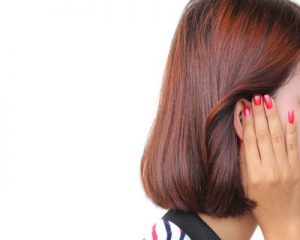
The experiment was conducted on 60 volunteers affected by tinnitus over a period of three months. The volunteers were told to sleep while listening to a tinnitus-like sound played by a device. The participants were further divided into three groups, each given a different type of sound-emitting device.
The idea of using a sound-emitting device was developed based on a sound-simulation therapy that was commonly used for tinnitus. There were three devices used for the experiment. Two of these were in-ear devices and one was a noise-emitting machine that was to be kept at the patients’ bedside, also called a bedside sound generator (BSG). All the devices had an option to adjust volume according to the comfort level of the participant.
In addition, the in-ear devices were of two types. One was a noise stimulus (NS) that allowed the participant to select from three sounds: white noise, band noise, and a sound that was a combination of both. These sounds were pre-loaded into the machine.
The other machine described as ‘tinnitus-matched’ (TM) played sounds that were customized to match the ringing sounds the patients normally heard.
These were developed using software that identified the sounds that each participant heard and used this data to create a ‘sound print’ closely matching the tinnitus sounds.
Experiment findings
After the period of three months, patients who volunteered for the experiment reported being less troubled by the ringing sound in their ears. While all the 60 patients reported this improvement, those who slept with in-ear devices and who wore the customized devices experienced the most improvement.
This proved that sound therapy helped patients with tinnitus, and those with TM and NS devices benefited more than those who used the BSG device.
According to Sarah Theodoroff, researcher at the VA Portland Health Care System and Oregon Health and Science University, and lead author of the study, “the brain will learn to ignore the tinnitus” if a person listens to this sound while sleeping. She added that the study confirms that “sound-based therapy helps reduce tinnitus distress.”
Critiques of the study
While the study seemed to be significant in its discovery, there were a few shortcomings, the main one being the absence of a control group.
Since no participants were given other forms of treatment such as hearing aids or cognitive behavioural therapy, there was no way of comparing the effectiveness of sound therapy with that of other treatments.
In addition, there was no objective way to measure the extent to which volume of tinnitus was reduced through sound therapy, which is why researchers had to assess its effectiveness based on the participants’ reaction to tinnitus.
Dr. Jennifer Derebery, professor at the University of California, Los Angeles suggests that tinnitus could have varying causes such as grinding of teeth and being the side-effect of certain medications. She recommends that doctors check the hearing of tinnitus patients and identify the underlying cause before recommending a treatment.
Derebery adds that over time, people suffering from tinnitus get used to the sound, which then remains as an ambient noise that does not bother them anymore. She therefore recommends in-ear devices only for those whose symptoms persist or intensify over time.
Also read: Tinnitus Management: Therapies and exercises to manage ringing in the ears